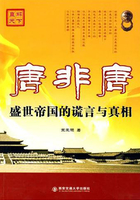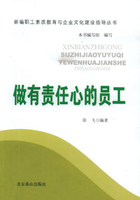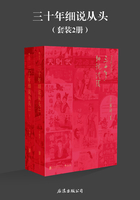Hence whatever men did from a sense of propriety, or from a regard to what was praiseworthy, they really did from a love of praise, from pride or vanity. This love of praise was one of the strongest of mans selfish affections, and the foundation of the love of honour. In conduct apparently the most disinterested, this selfish motive was present. If a man sacrificed his own interest to that of his fellows, he knew that his conduct would be agreeable to their self-love, and that they would not fail to express their satisfaction by bestowing on himself the most extravagant praises. The pleasure he would derive from this source counterbalanced the interest he abandoned to procure it. Hence all public spirit, or preference of public to private interest was a mere cheat and imposition on mankind.
The fallacy of this system lies, according to Adam Smith, in a sophistical use of the word vanityin its application to a remote affinity that prevails between two really very different things. To desire praise for qualities which are not praise- worthy in any degree, or for qualities praiseworthy in themselves but unpossessed by the individual concerned, is vanity proper;but this frivolous desire for praise at any price is very different from the desire of rendering our- selves the proper objects of honour and esteem, or of acquiring honour and esteem by really deserving them. The affinity between these very different desires, of which Mandeville made so much use, lay in the fact that vanity as well as the love of true glory aims at acquiring esteem and approbation; but the difference consists in this, that the desire of the one is unjust and ridiculous, while that of the other is just and reasonable.
There is also an affinity between the love of virtue and the love of true glory, which gives a certain speciousness to Mandeville's theory.
For there is a close connexion between the desire of becoming what is honourable and estimable, which is the love of virtue, and the desire of actual honour and esteem, which is the love of true glory. They both have and herein lies their superficial resemblance to vanitysome reference to the sentiments of others. Even in the love of virtue there is still some reference, if not to what is, yet to what in reason and propriety ought to be, the opinion of others. The man of the greatest magnanimity, who desires virtue for its own sake, and is most indifferent about the actual opinions of mankind, is still delighted with the thoughts of what those opinions ought to be, and with the consciousness that though he may neither be honoured nor applauded, he is yet the proper object of honour and applause.
Another feature of Mandeville's system was to deny the existence of any self-denial or disinterestedness in human virtue of any kind. Thus wherever temperance fell short of the most ascetic abstinence, he treated it as gross luxury; and all our pretensions to self-denial were based, not on the conquest, but on the concealed indulgence, of our passions.
Here the fallacy lay in representing every passion as wholly vicious, which is so in any degree and in any direction. There are some of our passions which have no other names than those which mark the disagreeable and offensive degree, they being more apt to attract notice in this degree than in any other. It is not therefore to demolish the reality of such a virtue as temperance, to show that the same indulgence of pleasure which when unrestrained is regarded as blameable, is also present when the passion is restrained.
The virtue in such cases consists, not in an entire insensibility to the objects of passion, but in the restraint of our natural desire of them.
The same fallacy underlies the famous paradox that "private vices are public benefits," and that it is not the good, but the evil qualities of men, which lead to greatness. By using the word luxury, as it was used in the fashionable asceticism of his time, as in every respect evil, it was easy for Mandeville to show that from this evil all trade and wealth and prosperity flowed, and that without it no society could flourish. "If;"Adam Smith replies, "the love of magnificence, a taste for the elegant arts and improvements of human life; for whatever is agreeable in dress, furniture, or equipage; for architecture, statuary, painting, and music, is to be regarded as luxury, sensuality, and ostentation, even in those whose situation allows, without any inconvenieney, the indulgence of those passions, it is certain that luxury, sensuality, and ostentation are public benefits." If everything is to be reprobated as luxury which exceeds what is absolutely necessary for the support of human nature, "there is vice even in the use of a clean shirt, or of a convenient habitation.' Hence the whole point of the paradox rests on a loose ant unscientific use of the word luxury.
II. To turn now to the other great question of ethics, to the nature of moral approbation, and its source in the mind.
As the different theories of the nature of virtue may all be reduced to three, so all the different theories concerning the origin of moral approbation may be reduced to a similar number. Self-love, reason, and sentiment, are the three different sources which have been assigned for the principle of moral approbation. According to some, we approve or disapprove of our own actions and of those of others from self-love only, or from some view of their tendency to our own happiness or disadvantage; according to others, we distinguish what is fit or unfit, both in actions and affections, by reason, or the same faculty by which we distinguish truth from falsehood;and according to yet a third school, the distinction is altogether the effect of immediate sentiment and feeling, arising from the plea sure or disgust with which certain actions or affections inspire us.














